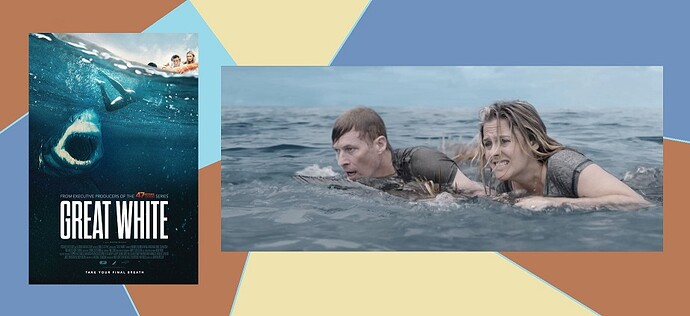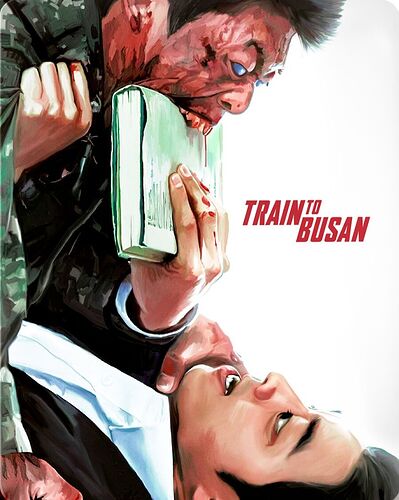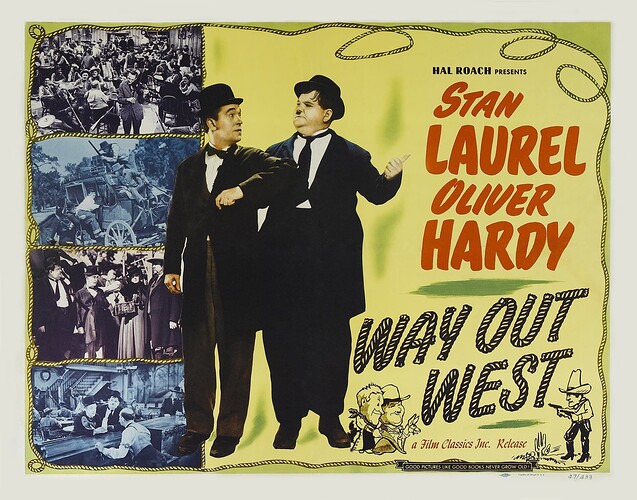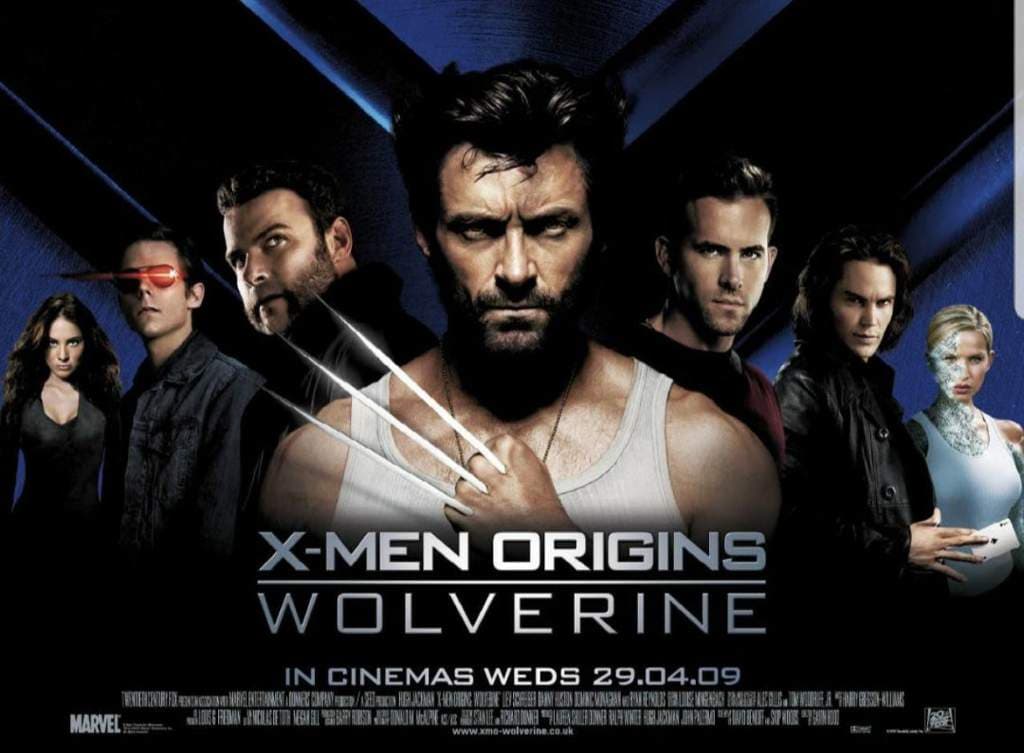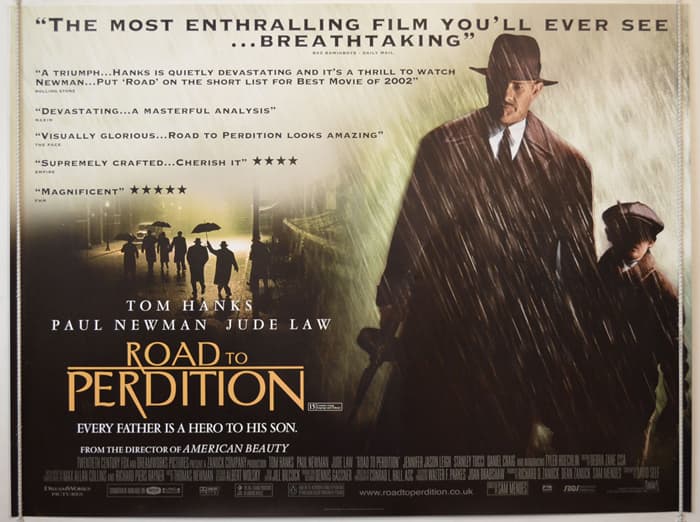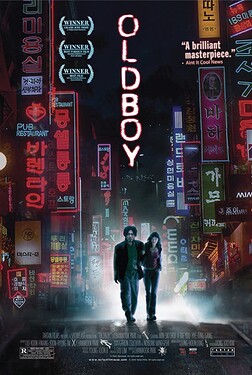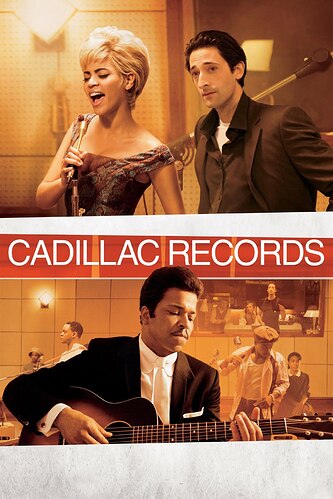- Kar-Wai: Chunking Express 8/10
- Hark: Once Upon a Time in China And a America 4/10
- Pasanen: Tup-akka-lakko 5/10
- Ray: In a Lonely Place 7/10
- Fisher: The Hound of Baskervilles 5/10
- Lenzi: Syndicate Sadists 6/10
- Rea: Django & Django (doc) 7/10
- Massi: Emergency Squad 6/10
- Franco: Erotic Rites of Frankenstein 8/10
- Jarmusch: Mystery Train 7/10
I’m gonna take pages out of the play books of @Bill_san_Antonio and @Mickey13, and list what I’ve watched over a period of time, and with mini comments
3 Hommes a Abattre (3 Men to Kill) (1980) Dir: Jacques Deray, with Alain Delon, Dalila Di Lazzaro, & Pierre Dux **** out of ***** - An effective and entertaining little Thriller that shows just how paranoid it can get in politics and business, and how the innocent John Doe can get unfairly caught in the crossfire
Rififi en le Ciudad (Rififi in the City) (1963) Dir: Jesus Franco, with Fernando Fernan Gomez, Jean Servais, Antonio Prieto, Laura Granados, Robert Manuel, & Maria Vincent, ****1/2 out of ***** - A surprisingly effective and well made little Spanish Noir by the later infamous Jess Franco that doesn’t pull any punches and shows just how low and dirty the criminal game gets.
Die 1000 Augen des Dr. Mabuse (The 1,000 Eyes of Dr. Mabuse) (1960) Dir: Fritz Lang, with Peter van Eyck, Dawn Addams, Gert Frobe, Wolfgang Priess, Werner Peters, Andrea Checchi, & Howard Vernon ***** out of ***** - Lang’s last directorial effort is fabulous and harkens back to his Silent Cinema days. Dr. Mabuse was the perfect villain for the Cold War era
Milano Trema: la Polizia Vuole Giustizia (The Violent Professionals) (1973) Dir: Sergio Martino, with Luc Merenda, Richard Conte, Silvano Tranquilli, Martine Brochard, & Chris Avram ***** out of ***** - Another solid crime caper from Italy were police corruption goes to the highest levels of society, and where the line between duty and tyranny becomes non-existent
Nadie Oyo Gritar (No One Heard the Scream) (1973) Dir: Eloy de la Eglesia, with Carmen Sevilla, Vicente Parra, Maria Asquerino, Antonio Casas, Goyo Lebrero, & Tony Isbert ***** out of ***** - A very underrated and underseen Spanish Thriller who’s surprise ending is very clever and effective
La Ultima Senora Anderson (In Fondo Alla Piscina/Death at the Deep End of the Swimming Pool/The Fourth Victim) Dir: Eugenio Martin, with Carroll Baker, Michael Craig, Marina Malfatti, Jose Luis Lopez Vazquez, & Marina Campa **** out of ***** - A little too twisty and turney Italian/Spanish Giallo, but still quite entertaining, and the twist is actually quite surprising and original.
It was 1935 for me last week.
The Bride of Frankenstein (Whale / 1935)
Boys Will be Boys (Beaudine / 1935)
Captain Bill (Ceder / 1935)
Death Drives Through (Cahn / 1935)
The 39 Steps (Hitchcock / 1935)
Mutiny on the Bounty (Lloyd / 1935)
Bride of Frankenstein is much lauded but I have to say I prefer the original. Perhaps as too much of it was lampooned in Young Frankenstein to such brilliant effect. But to be honest, despite it’s strong points I don’t think the comedy elements fit well and the miniature people made by Dr Pretorius were silly. His character though was one of the very best parts of the film.
Captain Bill and Death Drives Through are a couple of British quota quickies of no real interest and Boys Will be Boys is an earliesh Will Hay comedy that doesn’t reach the standards he will set later with films like Oh Mr Porter!. Mutiny on the Bounty was the Oscar winning film of the year and still has some appeal but The 39 Steps was the stand out film of the year that I watched this week by far. Some terrfic scenes that still work so well after all these years. Hitchcock at his best I think.
I couldn’t agree more about Bride of Frankenstein - I definitely prefer the original. Your watching of The 39 Steps has put me in the mood to pull out some of my favorite Hitchcock titles and have a little marathon.
Shark lovers – that is: those who like shark movies - are pampered these days with two new entries in the neverending story of Jaws wannabees. The good news is that both movies do away with the nonsensical gimmickry of the recent Sharknado type of movies and go back to basics: stranded people who must try to survive while being stalked by sharks.
The first one
GREAT WHITE (2021, Martin Wilson)
offers all the clichés you can expect from a movie in this sub genre: there are five stranded people, they all have their issues, they float around for quite a while in an inflatable lifeboat and the sharks are out there in the water.
No news under the sun or in the water, but the shark attacks are adequately bloody and the film has at least this quality that the most irritating characters are killed while the more likable ones make it back to the shore.
Average **½ out of 5
The second one
THE REQUIN (2022, Le-Van Kiet)
Is a different kind of beast. Well, that’s the good thing about it: while going back to basics, it tries to be different as well. And it also stars Alicia Silverstone, not a bad thing either, most of us will say.
To start with Alicia: she made her debut at the age of 14, when she looked like 18. Today she’s 45 and still good-looking, but of course no longer looking like 18.
Silverstone and her husband (in the movie) are on vacation in the far east (Vietnam); she’s recovering from a recent miscarriage and the two are having long conversations about what happened and who’s to blame for it. And then a monsoon reduces their above-water villa to no more than a raft. And of course the sharks are waiting for them.
The film is different in the sense that it tries to give the two main characters more psychological dept, and that was not a bad idea, but the result of all these conversations is that the first shark only shows up at the one hour point, rather late for a movie that runs for no more than 89 minutes. That wouldn’t have been too much of a problem if this final shark half hour would have been a hair-rising experience – we know the people by then and should care for what happens to them - but it’s no more than adequate, not bad, but not great either
One star for trying, one for Alicia ** out of 5
Note: Requin is the common French word for shark but occasionally also used in the English language, but pronounced differently
Been watching some Hopalong Cassidy films on Youtube lately. Really enjoyable stuff. William Boyd really had charisma, I dare say bigger than John Wayne himself (and from what I heard was a nicer guy too)
Sounds fantastic
Might have been more realistic if it was the other way around.
Occhiali Neri / Dark Glasses (2022, Dario Argento). I just left the theater. This may have counted as some kind of Berlinale secret favorite, at least for fans of cinema of days long past, and of course the maestro and his daughter were here, too. Overall, it’s a passable thriller with some hints of past genius in there, but overall it’s just not much more than that, and a lousy ending. Worth watching and might find some fans, but don’t expect too much.
Three horror films on DVD, that I got for free.
All three are excellent; and each has a unique take on what makes an entertaining, memorable horror.
I’d forgotten just how much I used to like ‘The Lost Boys’, especially when it was released in 1987…the definition of what a roller-coaster fun ride should be…
I think I’ll now probably upgrade it to Blu ray, as it will be the perfect accompaniment to the original ‘Fright Night’.
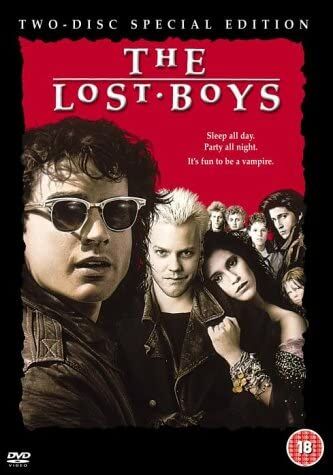
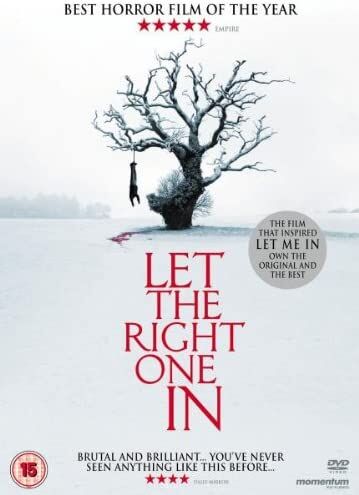
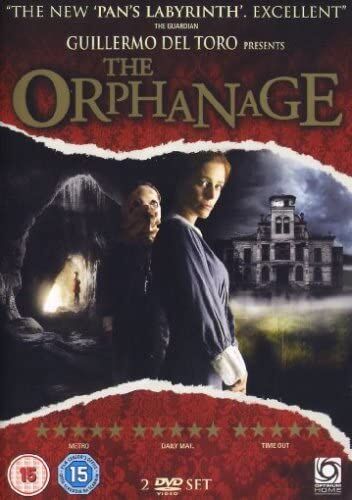
The wife and I sat down and watched Train to Busan (2016) today. For fans of zombie movies, this is a “must see”.
Laurel & Hardy at their very best; a worthy Marvel film; and a very welcome addition to my gangster collection…
Celebrating its 20th anniversary, ‘Road to Perdition’ (2002), is nothing short of breath-taking. An excellent example of the gangster genre, and featuring some excellent cinematography (courtesy of Conrad L. Hall); and riveting performances from Tom Hanks, Paul Newman, and Daniel Craig.
The direction, courtesy of Sam Mendes, is impeccable…
Way out west is also on my watchlist.
I watched Hotel Ttransylvania 4. No big deal, watchable with the kids but my daughter (11 years) already found the story meagre and the movie short.
You can never go wrong with the legendary Stan and Ollie…
i like the cover art! 
Black Christmas (1974) - Director: Bob Clark - 4/10.
On Her Majesty’s Secret Service (1969) - Director: Peter R. Hunt - 7/10 → 8/10.
Impulse (1984) - Director: Graham Baker - 6/10.
Phantom Soldiers (1987) - Director: Teddy Page - 6/10 - While the movie still suffers from some laughably atrocious dialogues, second-class acting as well as scarce characterization, the fact of the matter is that this is the best Filipino action flick as well as Teddy Page’s best work to date, bar none. The film initiates with a ridiculously over-the-top massacre scene, in which a squad of Darth Vader lookalikes mows down an entire village by blowing the entire place to bits. This and many other sequences in the film attest to the noticeably higher budget in that everything which is not shot at is blown to smithereens. That being said, the action directing and editing are all suprisingly good for a cheapo Filipino production; the narrative and the story itself are handled quite well and are coherent for the most part, whereas the basic premise turns out legitimately interesting and is resolved in a sensible fashion. Albeit confused in places, it is genuinely hard to come by a better Filipino action piece of trash. If you’re looking for a ruggedly structured and reasonably plotted actioner with a little bit of that low-budget grunge, this one ought to be on top of your watchlist.
Diamonds Are Forever (1971) - Director: Guy Hamilton - 6/10 = 6/10 - A re-watch.
Never Say Never Again (1983) - Director: Irvin Kershner - 6/10 = 6/10 - A re-watch.
Falling for You (1995) - Director: Eric Till - 4/10 - This is essentially the “damsel in distress getting stalked by a hot killer” kind of movie for the most part; what ultimately redeems the flick to the extent is some extra character elaboration and its slightly different, but relatively prepossessing structure. The film particularly gets better following the somewhat superficial first half, after which it considerably expands upon the psychological motives of its heroine; notwithstanding, it never really takes off on account of its occasionally measly dialogues, the paltry performance by its female lead as well as the invariably insipid, shallow directing, plus the climax is kind of stupid. That being said, Billy Dee Williams’s charmisma and the adequately delineated characters do inform the overall composition with a degree of novelty and prevent it from devolving into an utterly somnolent viewing. Not that good by any stretch of the imagination, barely passable at some points, but it should fit the bill if you are a 1990s junkie and have literally nothing else to watch.
Il castello dalle porte di fuoco (1970) - Director: José Luis Merino - 6/10 - Though it is hard to accuse the film of any outstanding originality, there is no disgusing the fact that it reshuffles a number of horror tropes and then manages to assemble them in a way which is both elegant and refreshing, bringing forth a very natural composition. Whilst developing the simple story, Merino keeps a tight grip on the storytelling and ensures that the movie does not grow stagnant at any particular point, making the narrative flow steady, straightforward and unpretentious. While it is hard to deny that the dialogues in the English dubbing are on the cheesy side, the soundtrack sounds merely passable and the monster looks a bit like a walking heap of turd, the unaffected as well as forthright nature of the narration largely compensates for the flaws and prevents the flick from becoming more complicated than it needs to be; this in turn strengthens the overall structure and enhances the gothic atmosphere of the whole offering. This is hardly an essential viewing, but quite enjoyable all things considered.
Madeleine, anatomia di un incubo (1974) - Director: Roberto Mauri - 5/10 - This is an unclassifiable horror of sorts from Roberto Mauri. The production feels like a cross between arthouse as well as exploitation filmmaking and seems to have been aimed predominantly at effete hippie filmgoers in that the flick delivers nudity, very pretentious dialogues, psychedelic visuals and a decadent story instead of the usual mix of violence and jump scares. The movie doesn’t have a concrete storyline as such and exhibits a rather lax approach towards the storytelling; that being said, Mauri manages to endow the whole enchilada with a subtly disquieting atmosphere and executes the material with an unexpected degree of classiness. The ending kind of fails to live up to film’s full potential and feels a bit like a deus ex machina, but other than the disappointing climax, this outing turned out much better than expected. Probably more of a diverting oddity than anything else, but possibly worth a viewing if you fancy tracking down some weird, obscure piece of trash.
Estratto dagli archivi segreti della polizia di una capitale europea (1972) - Director: Riccardo Freda - 5/10 - In the events following the inciting incident of the screenplay, I was impressed with the gothic ambiance and the general execution by Freda, who approaches the tale with a degree of restraint and narrative tastefulness. Sadly, this inspiration does not carry on past the story’s midpoint and subsequently tapers off. The biggest issue consists in the fact that this is essentially a movie of two halves, the latter of which simply squanders much of the potential and atmosphere established by the first forty minutes. Thereafter, the storyline sort of loses its footing in the crisis phase of the story and proceeds to unfold in a somewhat vapid way, culminating in the rather shallow, predictable climax; at one point during the denuouement, one random character comes out of the woodwork to explicate the ending and spells it all out for the audience in a ponderously corny, literary fashion, which further conduces to the feeling of scripting helplessness. There is no denying that the film makes for a fine showcase for Freda’s filmmaking skills, showing he was a capable enough director, but this is still a missed opportunity above all else.
Sette scialli di seta gialla (1972) - Director: Sergio Pastore - 5/10 - While it seems, prima facie, like a superior giallo offering in light of its flamboyant editing and lively style, something is missing to catapult it into the realm of the best entries of the genre. Other than the distinct setting, the storyline isn’t that different from your usual whodunit mystery and to add insult to injury, it lacks enough narrative focus to endow the tale with a degree of depth and resonance; the flick leapfrogs from one killing to another in a rather vapid manner and most of it does little to effectuate a steady buildup of tension or anything along those lines, failing to infuse the outing with a degree of narrative firmness. Apart from the drug-addled circus lady, the characters are on the vague side as well which makes it hard to root for anybody in the context of the story. Though the movie admittedly does get better towards the end and climaxes in the extremely violent and stylish way, to my way of thinking, this ultimately cannot make up for the superficiality of its middle section.
Come rubare la corona d’Inghilterra (1967) - Director: Sergio Grieco - 3/10 - Unfortunately, it turned out a lot less entertaining than I’d hoped. The biggest issue resides in the fact that it is just too slow and boring to sustain one’s attention throughout its entire duration and needless to say, it doesn’t have much of a story to fall back on. The flick too often devolves into the kind of somnolent talkfest nobody wants to see in a romp of this sort and the action takes a backseat to the cheesy effusions and quips of its cartoonish characters way too frequently. The outing helplessly shambles from one cheap filming set to another on a regular basis, trying to animate the bland, pointless intrigue to no avail. The only really enjoyable thing about the whole enchilada are the scenes portraying Argoman dashing about in those cute leggings of his and wreaking havoc in the charmingly corny way; that being said, if you find that sort of thing amusing, you might as well just watch the trailer and skip the movie altogether 'cause there is not much else to take pleasure in here.
El pez de los ojos de oro (1974) - Director: Pedro L. Ramírez - 4/10 - The whodunit mystery as such is penned in a mostly competent fashion and it is the prime reason why the flick stays afloat in the teeth of its conspicuously meager budget. Albeit passable for the most part, the execution itself bears a lot of the hallmarks of low-budget filmmaking such as its liberal use of day-for-night shots as well as occasionally very crude editing, which especially manifests itself in one rather sloppy car crash scene. The cast mostly consists of no-name actors, which is also reflected in their undistinguished performances, but they do carry their own weight just fine and at least don’t get in the way of the admittedly decent storyline. Cheap as the whole affair may feel, the motion picture moves forward at a tolerable pace, keeps the storytelling fairly straightforward and does not overshoot its aim; while the film does appear rather shoody on some occasions, it still retains a degree of coherence and simplicity which streamlines the narrative flow and makes it fairly prepossessing to watch. Of interest to completists primarily, but not too bad on its own.
Il baco da seta (1974) - Director: Mario Sequi - 7/10 - Albeit stylistically old-fashioned and on the slower side, Sequi’s film surmounts the aforementioned flaws thanks to its splendidly piquant script. Approaching this movie as some sort of giallo doesn’t make much sense, as the work in question is obviously not so much a regular whodunit mystery as it is an intelligent film noir in its own right with flamboyantly delineated characters and its own sense of aesthetics clearly harkening back to the 1950s filmmaking as opposed to the 1970s. The fact that the director was sixty-one years old at the time of making this only corroborates what’s already evident in the manner in which the whole motion picture is handled. The emphasis here is not put on the central intrigue as such, but rather on the way each character responds to the story’s developments, which climaxes in the scrumptiously sardonic finale helmed in the classically noir style. Not bad at all, but probably made at the wrong place at the wrong time, which would explain its utter obscurity.
Tango & Cash (1989) - Director: Andrey Konchalovskiy - 5/10.
Giorni d’amore sul filo di una lama (1973) - Director: Giuseppe Pellegrini - 2/10 - While the basic premise offers a nice point of departure for a compelling tale, the storyline completely dissolves along the way on account of film’s substandard directing, plodding storytelling, slovenly writing, inferior editing and cheap camerawork. Though there is nothing inherently bad about the story, it often feels paltry in virtue of the way the plot is developed here. The moment the narrative goes off on a tangent about some smuggling subplot it all becomes irrepairably muddled and off-focus, at which point the movie basically grinds to a halt and proceeds to lurch towards the wretched climax in the most languid manner possible. The mystery itself proves not that good either on account of the slipshod scripting and one can easily guess the final outcome. The ending is so rife with new developments that it would take another half an hour to recount all of them in a balanced fashion, yet it all happens within the span of ten to fifteen minutes. Overall, it’s just bad, cheap and deservedly consigned to oblivion.
Viaje al vacío (1969) - Director: Javier Setó - 4/10 - Albeit reasonably well-made and duly paced, there is no disguising the fact that this giallo offering is too overwrought and far-fetched for its own good. Entertaining as it may be, most plot developments excessively rely on the oddball characterization, wonky scripting as well as some really exorbitant ideas that do not hold up to scrutiny; the film feels a tad too wild and instead of introducing a handful of more extravagant narrative flourishes here and there for an element of surprise, it interminably depends on them and ultimately, it is nothing but. Admittedly, the whole thing moves at a very smooth, swift pace, stays rather focused throughout and greatly benefits from the assured execution, which is not too shabby indeed, so calling it bad or anything along those lines would be a gross overstatement. It is pretty entertaining and that surely counts for something, with that being said, the motion picture too often appears preposterous and at the end of the day, the entirety of it feels a little too silly to be treated too seriously.
Emma, puertas oscuras (1974) - Director: José Ramón Larraz - 6/10 - The biggest allure of this obscure slasher outing derives from the fact that it is quite unpredictable and possesses a uniquely disquieting as well as sinister atmosphere; some of the aforesaid unpredictability may simply stem from the curt nature of its story which does not elaborate on quite a few things and thus, leaves the viewer in the dark about some of the details regarding the main character and her entourage. Notwithstanding, it all comes down to the splendid execution by Larraz and his aptitude for imaginative staging, brisk editing, evocative lighting and balanced storytelling. It is entirely due to the director’s filmmaking flair that the movie works so well even if the flick kind of runs out of ideas towards the end and doesn’t know how to wrap up all this mess in an effective fashion. Susanna East’s psychotic gazes and grimaces as well as the tense orchestral soundtrack further redound to the bleak, unnerving vibe and make this an engrossing if unsettling viewing.
L’occhio nel labirinto (1972) - Director: Mario Caiano - 4/10 - My issue with the movie is that it beats about the bush for so long, taking its time before getting down to the nitty-gritty of the story and furnishing anything of real interest. To my way of thinking, the central heroine is not that interesting to begin with, Rosemary Dexter is not that good of an actress to carry her role properly and is here predominantly to show off her breasts; apart from the part of Adolfo Celi, the main characters are not terribly exciting or colorful either, Mario Caiano’s directing is just decent without being anything special and additionally, the narrative feels quite erratic and rushed at certain junctures. It is true that the final revelation comes as a surprise, resolving the mystery and arranging things in a really neat manner, however, the storyline preceeding the resolution is not that absorbing to follow and for my part, it is just another episode of rich degenerates doing degenerate things in a posh Italian villa. Perhaps it is just a matter of taste, but in the end, I didn’t find the film all that engaging.
Poliziotto sprint (1977) - Director: Stelvio Massi - 6/10 - Although this is essentially a feature-length car chase with some great action directing and snappy editing to boot (pun intended), the storyline as such is not bad at all and albeit simple, it does cover all the basics and provides the necessary context for the unfolding tale, effecting a relatively prepossessing, unpretentious and expeditious flow of the narrative. With that being said, what makes the work in question work so well are the energetic performance by Maurizio Merli, the distinctive, likeable antagonist played by Angelo Infanti, good chemistry between Merli and Giancarlo Sbragia enacting the role of the protagonist’s boss, the jaunty score by ever-reliable Stelvio Cipriani as well as some astounding stunts, which include one painful-looking scene of a criminal getting mowed down by a hurtling car. While there is no question the film is a fairly uncomplicated, juvenile, simple-minded actioner at its core, it likewise incorporates a fair dose of humor as well as some more touching moments and feels kind of fresh and genuine. It could’ve been even more memorable with some more story elaboration, but this is still a highly recommendable poliziottesco affair which is a must-see for all Merli fans.
Nadie oyó gritar (1973) - Director: Eloy de la Iglesia - 5/10 - While the movie has an interesting premise as well as some intriguing character development and constitutes a successful blend of several different genres, which makes it hard to categorize the work, the motion picture likewise features a corny, excessively cheerful soundtrack and a rather old-fashioned directing approach which exhibits itself in some swirly camerawork, nondescript staging and the likes. A number of surprising turnabouts keeps the storyline interesting and it is hard to predict where the plot is going to go next; the climax also comes as a surprise, but it is not augured by any foreshadowing and may feel a bit far-fetched to some. Albeit thematically germane, the ending kind of comes out of the blue and does not exactly feel like a logical conclusion to the crisis phase of the script, which does not have much tension or narrative propulsion and stagnates pretty badly until the arrival of the resolution. All in all, it is not too bad if you’re in the mood for something a little different.
La mansión de la niebla (1972) - Director: Francisco Lara Polop - 5/10 - Albeit quite corny and cheesy, there is no denying the fact that the movie has some neatly outlined characters, deft lighting, good pacing and some decent scripting even if the writing itself has its ups and downs. There is a whodunit element as such, but it does not play as big of a role as you would expect in a dedicated whodunit mystery and the whole composition effectively constitutes an amalgamate of different ideas; with that being said, I don’t want to go into the details so as not to spoil the movie because figuring out where it is going to go next is part of the fun. While some of it works and the rest of it doesn’t, at the very least it tries its hand at a bunch of different things and essays to eschew convention, which is always welcome and appreciated. There is a number of highly atmospheric sequences, but they do not amount to much on account of the manner in which the flick is eventually resolved. On the whole, the motion picture should prove a decent enough diversion as long as you approach it with the right expectations and are willing to overlook its flaws.
El asesino está entre los trece (1973) - Director: Javier Aguirre - 2/10 - The recently widowed hostess invites a number of guests over to her secluded country house in order to discuss her husband’s untimely death and what do you know, it turns out her consort’s passing was not a mere misfortune. There is a lot talking beside the swimming pool, then there is some more talk about the potential killer during dinner, then Naschy comes out of the woodwork and makes out with a servant girl (nobody knows why and nobody cares), then the guests organize a spiffy cricket match, during which there is some more idle chatter… you get the general idea. As a matter of fact, talking is the primary attraction of this slumberous blight of a flick and all this garrulous nonsense lasts for the entire first hour; the movie eventually proves to be as much of a soap opera as it is a whodunit mystery. The underlying idea is completely trite, whereas the utterly unimaginative execution further redounds to the prevailing tedium. A real boon for all the poor insomniacs out there and a bane for pretty much everybody else.
I padroni della città (1976) - Director: Fernando Di Leo - 5/10 - Though the motion picture features good directing, neat pacing and has a slightly more episodic nature, which endows the flick with a somewhat relaxed vibe, the film fails to leave a lasting impression on account of its superficial script which doesn’t develop the story beyond the usual rudiments and mostly serves as a pretext for some admittedly gripping action sequences. Albeit amicable, the two protagonists are bland for the most part and do not introduce much into the equation apart from the comedic factor; the story of vendetta sort of lingers in the background, but ultimately stays rather nebulous and is never really fleshed out properly; the final revelation is not much of a revelation and all of it just doesn’t amount to much in the end. The outing, by and large, focuses on effective stunts, shootings, fistfights, all the usual suspects and this is where its primary strength lies. While the movie entertains and presents the material in a predominantly irreproachable fashion, the writing is on the tenuous side and overall, all of it just does not turn out all that memorable in the end.
Da Corleone a Brooklyn (1979) - Director: Umberto Lenzi - 4/10 - While the backdrop in the form of the Italian American community in the NYC proves admittedly interesting, the rest of the film is pretty much by the numbers with not much in the way of a resonant story or three-dimensional characters. Mafia dealings as well as multiple references to the Italian immigration to America get buried under the thick crust of unimaginative, cheap writing; the tale does not offer much novelty and even fails to capitalize on its NYC locations to any considerable extent. Most significantly, the motion picture is constructed in a somewhat cumbersome fashion: Merli’s character is introduced in a genuinely brusque manner with not much of a prelude or anything which could shed some light on the protagonist and what follows thereafter leaves much to be desired as well. The storytelling likewise feels kind of shaky, leapfrogging back and forth between different places and weaving the plot in an all too pedestrian, muzzy fashion. All of the above results in a somewhat indistinct, flavorless composition and the flick simply does not turn out all that enjoyable.
Qualcosa striscia nel buio (1971) - Director: Mario Colucci - 5/10 - Though the basic premise is not a new one and the film largely follows a well-trodden path, the work in question still manages to supply an assortment of distinctive characters and pack the running time with a number of highly evocative as well as sinister scenes. The flick moves at a steady pace, does not really beat about the bush and resolutely proceeds from point A to point B. What differentiates the offering at hand is that it focuses on building up tension in a more subliminal manner as opposed to your usual jump scares; the thing which really makes the movie tick are all the odd touches and ideas which make their way into the supernatural elements of the narrative and thence its distinct flavor derives. Although the pacing kind of slackens in the second half and the writing intermittently feels somewhat insubstantial, the outing never seems to opt for the path of least resistance and genuinely endeavors to bring forth a compelling piece of horror filmmaking in the teeth of its meager budget. Thus, even if it does not always succeed, sporadically suffering from jerky editing and mediocre camerawork, it continually stays intriguing and entertaining throughout.
Gli occhi freddi della paura (1971) - Director: Enzo G. Castellari - 7/10 - The flick does not differ from other judge-centered home invasion thrillers all that much, however, the distinctively kinetic direction by Castellari, the prepossessingly outlined characters as well as the splendid acting all make this outing a genuine pleasure to watch. The more nuanced script indirectly deals with the issue of class strife as well as societal hypocrisy and unfolds in a way that’s both natural and logical; what’s even more interesting, the movie doesn’t fall into the pitfall of dogmatic haranguing, doesn’t take any sides and drives its point home while retaining an unexpected degree of refinement and subtlety, so the viewer can construe the tout ensemble in any way they want. There are times when Castellari’s gimmicky style grows somewhat tiresome and overagitated, but there is no denying that he conducts the narrative with a firm hand and keeps it all taut, focused and to the point. Lastly, although all actors give a good show, it is Frank Wolff’s terrific performance that makes the project so interesting; Wolff commendably handles the demanding role of the vindictive ex-convict and it is him who gives the material all its meaning and emotional resonance. Quite underrated.
Airport 1975 (1974) - Director: Jack Smight - 5/10.
Airport ’77 (1977) - Director: Jerry Jameson - 5/10.
Ice Station Zebra (1968) - Director: John Sturges - 7/10.
Tentacoli (1977) - Director: Ovidio G. Assonitis - 2/10 - If you’re having any trouble falling asleep, this film should help you tremendously. This is a movie so frightful and so exciting I literally dozed off right after completing it despite having viewed it during the day and having slept well the night before, what a wonderful sleeping pill this is. Truth be told, the motion picture isn’t that dreadful and its biggest drawback dwells in its completely shallow directing. Interestingly enough, the whole project is steered exactly in the way you would expect a mercantile film producer to handle this sort of affair: most scenes are framed and put together in a mostly agreeable manner, but when it comes to any heavy lifting during the more tense sequences, the execution turns out sloppy, helpless and flabby; this thoroughgoing inanimation is further exacerbated by its uniformly flat as well as muddled writing, shoddy special effects and some genuinely questionable directing choices and generally contrived ideas that do not work at all and simply amount to one big pile of mess.
The Concorde… Airport '79 (1979) - Director: David Lowell Rich - 1/10 - Even if its predecessors were all flawed in a bunch of different ways, they were all mostly agreeable and had that corny 1970s charm. This outing, however, has none of that and is so bewildering and so unabashedly ludicrous that it has to be seen to be believed. The predominant issue basically resides in the fact that the contents of this film are pretty much indistinguishable from the kind of stuff you would expect to see in a deliberate parody. The overarching plot is so preposterous it is hard to grasp why this actually got produced in the first place, not to mention the fact that so many illustrious actors agreed to appear in this heinous wreck of a flick; most developments virtually happen for no rhyme or reason because they essentially hinge upon a premise which does not work at all and feels completely arbitrary. Needless to say, the characterization is arrantly cliche and turns out just as contrived as its tenuous, sensationalistic foundation. All the ensuing stupidity and absurdities constitute the cherry on top of this luxurious shit cake. What a wretched piece of trash.
Telefon (1977) - Director: Don Siegel - 6/10.
It’s been 1936 for me recently.
My Man Godfrey (La Cava / 1936)
Sweeney Todd: The Demon Barber of Fleet Street (King / 1936)
A Night at the Opera (Wood / 1936)
Mr Deeds Goes to Town (Capra / 1936)
The Plainsman (De Mille / 1936)
Windbag the Sailor (Beaudine / 1936)
Captain January (Butler / 1936)
The Great Ziegfeld (Leonard / 1936)
Just goes to show the Oscars were a weird thing even back in 1936. The Great Ziegfeld has some good moments but isn’t anywhere near the best film of the year. It wasn’t even the best film William Powell appered in that year. That was My Man Godfrey. Some of that may be because it hasn’t aged so well but however you look at it the film is disjointed and overlong. Mr Deeds Goes to Town on the other hand would still work as a modern day Rom Com today and was first class stuff. It’s easy to see why Capra was so popular back then and he certainly did deserve his best director Oscar in my opinion. Deeds starred Gary Cooper and Joan Bennett and these two were also paired in the epic western The Plainsman. They are both excellent in both these films and play off each other really well. Cooper was starting to show his western persona in The Plainsman too. It might not have been very historically accurate but was enjoyable none the less.
A Night at the Opera may have heralded in a new approach for the Marx Brothers, with more romance and musical numbers but it still has some of their very best comedy routines. In fact I think it’s fair to say that their best scenes in this film are possibly the very best they ever did. Windbag the Sailor was a British comedy featuring Will Hay and is also the first film to team him with future stalwarts Graham Moffat and Moore Marriott. Hay was always at his best when teamed with these two and this shows signs of what was to come. Tod Slaughter pretty much made a living off of Sweeney Todd in his day but the film version hasn’t really aged well. I much prefer listening to the records he released playing the role. My Granddad had these on old 78s and we used to love listening to them as kids. Completely over the top melodramatic nonsense but with such memorable lines. “You’ve a lovely throat for a razor!”
And lastly, Shirley Temple. For all the big stars featuring in the Hollywood films I’ve mentioned it was actually little Shirley who was the number one box office star, not only of 1936 but of 1935 too and would still be in 1937 and 1938. Whichever way you look at it that is an astonishing record. Her films were formulaic and simple of course but the little Moppet’s talent was extraordinary and even a cynical old grump like me couldn’t help but be wooed by her charm. I actually watched a few more Temple films from 1935 and 36 over the past couple of weeks and although I wouldn’t necessarily recommend them to the average Spaghetti Western fan and some of the racial politics in a few is difficult to swallow now I can still see why they were so universally popular back in the 30s.
I Just watched Cadillac Records, a 2008 biopic on the iconic Chicago Blues label Chess Records. Given the topic, this could have been an instant favorite, but unfortunately it suffers from a too-short runtime - 100 minutes is simply too little time to cover everything this film wanted to tell without coming across as a little shallow - and, worse, the number of inaccuracies almost drove me nuts;
Muddy Waters first went to England in 1958, not in 1967. Willie Dixon didn’t cite Little Walter as his favorite harmonica player (Big Walter Horton was reportedly his pick). Bo Diddley and Sonny Boy Williamson II are absent, as is Phil Chess, the co-owner of the studio. And while Howlin’ Wolf was a challenger for Waters role as King of the Chicago blues scene, it was never close to a bitter rivalry (I liked how they pointed out his no-nonsense attitude towards alcohol and money, though).
Nevertheless, I still found it an honorable attempt to spread the knowledge of this music, and I’m glad they chose to focus on the most influential artists for the studio (Muddy Waters, Willie Dixon etc) as opposed to the ones most well-known by mainstream audiences (Etta James and Chuck Berry). For the effort, I think it’s worth a 7/10.
The Good Earth (Franklin / 1937)
A Day at the Races (Wood / 1937)
Mr Smith Goes to Washington (Capra / 1937)
Snow White & the Seven Dwarfs (Hand / 1937)
Doctor Syn (Neill / 1937)
Oh, Mr Porter! (Varnel)
Capra’s Mr Smith is still a very good watch which after the other films by this director I’ve watched over the past few weeks comes as no surprise. The fact that The Good Earth was also still so engaging despite the questionable casting of the lead characters was much more of a surprise. It does look very wrong to have the main actors playing Chinese but the quality of the stars in question (Paul Muni and Louise Ranier) somehow make it work despite of everything. And after all the black and white I’ve watched since starting my 1930s binge the blast of technicolor from Disney’s Snow White was practically psychedelic.
Recently, the current world situation (Putin, the war in Ukraine, you know…) made me think of Robert Harris’ counterfactual thriller novel Fatherland. Set in 1964 Berlin, it depicts a world where Germany won the Second World War. I recall cycling down to the city library each afternoon to sit there in an armchair and read it for an hour when I was fourteen, truly fascinated by this alternate world. I just wish I could recommend the 1994 HBO film adaption, which I watched this week, as much. Not that it’s quite as bad as Harris himself thinks. It just fails to recapture the haunting, noir-esque feel of the book.
Rutger Hauer and Miranda Richardson stars as Kripo detective Xavier March and American journalist Charlotte Maguire, respectively, and they’re good in it. The rest of the cast is OK, but I really think it would have been much better if they’d used German-speaking actors instead. The soundtrack is OK as well but doesn’t really lift anything (for some reason, I always had Morricones Al Capone Theme from The Untouchables in my mind while reading the novel).
The first and most annoying problem is that they’ve completely changed the circumstances which allowed the germans to prevail in the war, which really hurts the believability. In the book, they win because Reinhard Heydrich survived and planned Operation Blau better, but since this is an American-produced film, of course they’ve changed it so that the Allies lost because D-day failed (anyone with the slightest interest in history knows that Hitler and c:o were beyond rescue by June 1944). The change to a less verbal medium takes away much of the world building, and many of those parts which made it to the film are presented trough rather awkward dialogue. Because of that it mostly degenerates to a mediocre TV cop film. The BIG movie killer, however, is the last third or so, which has virtually nothing in common with the novel and feels very strained. It’s all quite a shame this film turned out like it did as it could have been much better if it had been a feature film with a better script and director. At least it made me want to revisit the novel.
. I’d give it 5/10 and that’s already rather generous (the book is more like 7-8 from what I remember).
